Biology
Where can I find information about biology?
(Years 11-13)
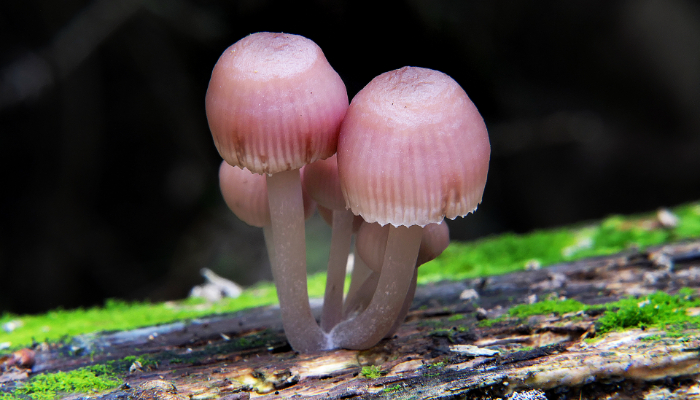
Image: Mycena clarkeana. (51972307759) by Bernard Spragg. NZ on Wikimedia Commons.
Entry last updated: 2/02/26
Introduction
Biology is the natural science that involves the study of life and living organisms from one-celled creatures to the most complex living organism of all - the human being. Biologists study the structure, function, growth, origin, evolution and distribution of living organisms. This entry shows where to look for reliable information about biology topics.
Cells and microorganisms
A cell is the smallest unit of life that can replicate independently, and cells are often called the "building blocks of life". Some organisms, such as most bacteria, consist of a single cell. Humans typically consist of around 100 trillion cells. A microorganism is an organism that can be seen only with the aid of a microscope and that typically consists of only a single cell. Microorganisms include bacteria, protozoans, and certain algae and fungi.
Britannica school is one of the EPIC databases. EPIC is a collection of reliable databases covering lots of different topics, and it's put together especially for New Zealand school students. You may need a password from your school or local library to access it.
Enter 'cell' into the search bar to find the article called cell (biology) which explores what cells are and how they work.
A new search for 'microorganisms' will bring up an article all about microbiology - the study of microorganisms.
Tips: To get to the EPIC resources you will need a password from your school librarian first. Or you can chat with one of our AnyQuestions librarians and they will help you online. Some EPIC databases may also be available through your public library.
Pathwayz is a website created by a community of science teachers. It has useful information on many biology topics including cells and microorganisms.
Select Biology in the Learn by Topic section.
Choose Cells or Microbiology from the list.
From the tree diagram chose the topic you are looking for, such as Cell Transport.
Tips: Websites that have .org or .net in the address can have good information, but you need to assess how reliable it is. Go further down the homepage of this website to find out more about it.
Crash Course is a website covering high school and some college level topics and has lots of videos on a variety of subjects like biology.
Look for Choose a course and select Biology.
Choose a topic such as Multicellular function from the list, or search using keywords like 'cells'.
Tips: Because the videos on this site are linked from YouTube they may include ads. It's best to ignore these and focus on the information we're looking for.
DNA and genetics
DNA, or deoxyribonucleic acid, is a self-replicating material which is present in nearly all living organisms as the main part of chromosomes. It is the carrier of genetic information. Genetics is the study of heredity, or how the characteristics of living things are transmitted from one generation to the next.
Britannica school is one of the EPIC databases. EPIC is a collection of reliable databases covering lots of different topics. It’s put together especially for New Zealand school students.
Search for 'DNA' to find a short article that introduces DNA and genetic code.
Use the arrows at the top of the article to browse related videos, like How DNA influences inherited traits.
You can also use this site to find articles on genetics.
Tips: To get to the EPIC resources you will need a password from your school librarian first. Or you can chat with one of our AnyQuestions librarians and they will help you online. Some EPIC databases may also be available through your public library.
BBC Bitesize is a website set up to help British students with school work and exam revision. This is a very useful website to explore if you want to know more about biology, as many of the same topics are studied here (note that most of the videos won't work here in New Zealand, but you can still use the articles and revision information).
Use the search bitesize option at the top right of the page.
Search for 'DNA' to find a range of articles, including about the structure and replication of DNA.
Search for 'genetics' and try the topic page Genetics to find more information.
This is a great place to find out more about DNA and genetics. It's a free website filled with educational videos on a range of topics, including science.
You can close and ignore any request for donations that shows up.
Go to Explore and the top of the page and look under Science
Select High school biology.
Choose Gene expression and regulation to find information about genes and DNA.
You can also go to the search bar at the top of the page and use keywords like 'genetics'.
Tips: Websites with .org or .net in the address can have good information, but you need to assess their reliability. Check the About link on the website, if you can find one. That can tell you what the organisation’s mission and values are. For example, on Khan Academy it says it is partnered with lots of other reliable organisations, like NASA and MIT.
Evolution and adaptation
Evolution is the gradual change in the characteristics of a population from generation to generation by such processes as mutation, natural selection, and genetic drift. Adaptation is any alteration in the structure or function of an organism, or any of its parts that results from natural selection. Because of this the organism becomes better suited to survive and multiply in its environment.
This website is a project by the University of Waikato and supported by the New Zealand Government. It has lots of articles, videos and quizzes on science topics from a New Zealand perspective. The site gives a good explanation of adaptation, with helpful definitions of related keywords like 'natural selection' and habitat.
Select Topics at the top of the page.
Choose Animal behaviour from the topic list and explore articles such as Native bird adaptations.
You can also search using a keyword such as 'evolution' or 'adaptation'.
Tips: Search words, or keywords, are the most important words in our question. You can leave out small words like ‘the’ and ‘of’ and just choose the main ones, e.g. adaptation. We can always change our keywords or add more if we need to.
Britannica school is one of the EPIC databases. EPIC is a collection of reliable databases covering lots of different topics.
Search for 'evolution' and select evolution (scientific theory).
Add the keyword 'human' to your search to find the article on human evolution.
Another of the EPIC resources, this database has heaps of information about different scientific topics, including evolution and adaptation.
Go to 'browse topics' option at the top right of the screen.
Choose the topic pages for Adaptation or Evolution to find lots of different types of resources, including academic journals.
Tips: To use the EPIC resources, you may need a password from your school librarian. Or chat with one of our AnyQuestions librarians to help you online. Some EPIC databases may also be available through your public library.
Human anatomy
Human anatomy is the study of the structure of the human body and how the parts of the body interact.
Gale Interactive: Science is a highly visual, online tool that helps teach complex topics in biology. You can access and manipulate interactive 3D models, zooming, rotating and exploring. It is part of the EPIC collection of databases put together especially for New Zealand school students.
Select the Human anatomy topic box near the bottom of the page.
Explore the topic list which includes Blood Circulation, Brain and Digestive System.
Tips: To use the EPIC resources, you may need a password from your school librarian. Or chat with one of our AnyQuestions librarians to help you online. Some EPIC databases may also be available through your public library.
Khan Academy has free articles and videos on all sorts of educational topics, including human anatomy.
You can close and ignore any request for donations that shows up.
Look down the page for the Science heading and select See all Science.
Choose the course for Health and medicine.
This has information about the different body systems and diseases.
Biotechnology
Biotechnology is the manipulation of living organisms or their components to produce useful, usually commercial, products. It includes a broad range of technologies from genetic engineering to animal breeding and industrial fermentation.
This website is a project by the University of Waikato and supported by the New Zealand Government. It has lots of articles, videos and quizzes on science topics from a New Zealand perspective.
Start with a search for 'biotechnology'.
Read through Modern biotechnology for an overview of the topic.
Check for related links to more information, like the link to Impacts of biotechnology on society.
Tips: Many web pages have links to further information or to other recommended sites. Following these links is a great way to find out more.
This site is one of the EPIC databases and has lots of articles from encyclopedias, magazines and journals. You may need a password from your school or local library to access it.
Search using keywords such as 'biotechnology'.
Alternatively, scroll down the page and select Biology to view the list of biology topics.
You can then select Biotechnology from the topic list.
Tips: To use the EPIC resources, you may need a password from your school librarian. Or chat with one of our AnyQuestions librarians to help you online. Some EPIC databases may also be available through your public library.
Socio-scientific issues
Socio-scientific issues are controversial social issues which relate to science. They have both biological and social implications and are topics on which people hold different opinions or viewpoints. Social implications may be economic, ethical, cultural, or environmental. Examples of socio-scientific issues include global warming, genetic manipulation and the use of 1080 poison.
Australia New Zealand Reference Centre Plus
This is one of the EPIC databases which gives full text access to newspapers, books, reports, journals and more. This is a good place to look to find news articles about people's reactions to controversial topics.
Try different keywords, like 'genetic modification' or 'genetic engineering'.
Use the filters at the top of the page to narrow your results to full-text, a certain type of source or a particular date-range.
Opposing viewpoints (Gale In Context)
This EPIC database is a great resource for exploring different perspectives and will help you draw your own conclusions.
Halfway down the page, select Science, Technology and Ethics topic box.
Explore the topic list which includes Animal experimentation, Cloning and Medical Ethics.
Tips: To use the EPIC resources, you may need a password from your school librarian. Or chat with one of our AnyQuestions librarians to help you online. Some EPIC databases may also be available through your public library.
This website is a great source of opinions from local experts on topical science-related issues. It is aimed at journalists and media, and is maintained by the Royal Society of New Zealand.
You will find the search box at the top right hand side.
Search using keywords like 'genetic modification' or '1080' and explore articles such as Does NZ need an update to genetic modification rules? and 1080 and animal welfare.
Scoop is an alternative news site representing a broad range of views, including press-releases from a variety of organisations and government departments. It's free to use for personal research.
Use the search bar to search for 'genetic modification' or '1080'.
Ignore or close any ads that pop up.
Tips: Websites that have .com or .co in the address can have good information, but you need to assess how reliable it is. Check the About us link on the website, if you can find one. That can tell you what the company’s mission and values are.
NCEA
There are several useful websites which can help you in your biology studies, including figuring out what you need to know for NCEA exams. Some sites have links to more information or other recommended sites. Following these links is a great way to find out more.
The NZQA website has past examination papers and exemplars to check out. Example answers for NCEA papers have answers marked from not achieved up to a low excellence.
Go to the NCEA subject resources page.
Then select Biology.
On the right hand side, select the Examination papers and exemplars. Choose the level you are studying.
Find the correct achievement standard number and open exam papers and exemplars for that standard.
Tips: We like sites like this because they’re reliable. You can tell because of their web address. They have .govt or .ac, meaning they are from government or educational organisations. They’re also New Zealand sites, so relevant for us.
If you are doing NCEA and want to brush up on, or revise your biology skills, this is a great place to go. This site is run by New Zealand science teachers, and the content is aligned to NCEA.
Choose Biology level 1, 2 or 3 from the top of the page (if you hover your mouse over the word Biology the levels will show up).
Select the subject you're interested in, like Gene Expression under level 2 or Human Evolution under level 3.
Explore the site to find more information.
Books
There are many books available on biology. Check your school or local public library to see what they have. Some recommended titles are:
Biology for dummies by Rene Fester Kratz and Donna Rae Siegfried.
The handy biology answer book by Patricia L. Barnes-Svarney and Thomas E. Svarney.
Cheats and deceits : how animals and plants exploit and mislead by Martin Stevens.
Biology by Kenneth A Mason, Jonathan B Losos, Tod Duncan, Peter H Raven, George B Johnson, et al.
SCIS no: 1873816
Topics covered
Related content
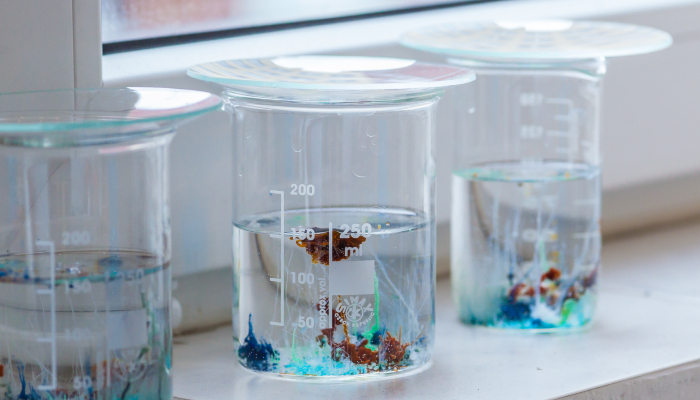
Chemistry
Where can I find information about chemistry and chemical elements?

Physics
Where can I find information about physics?
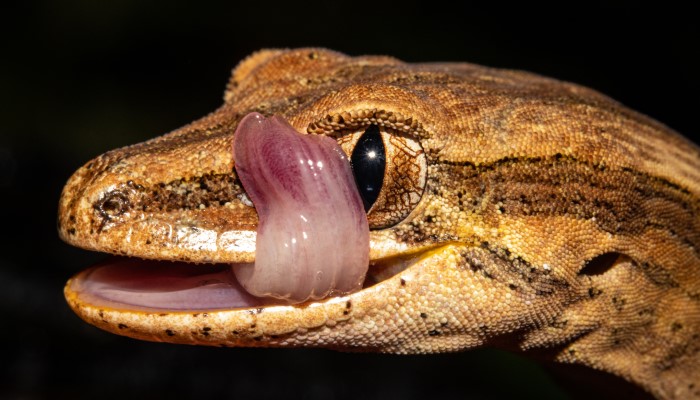
Adaptation
Where can I find information about plant and animal adaptation?
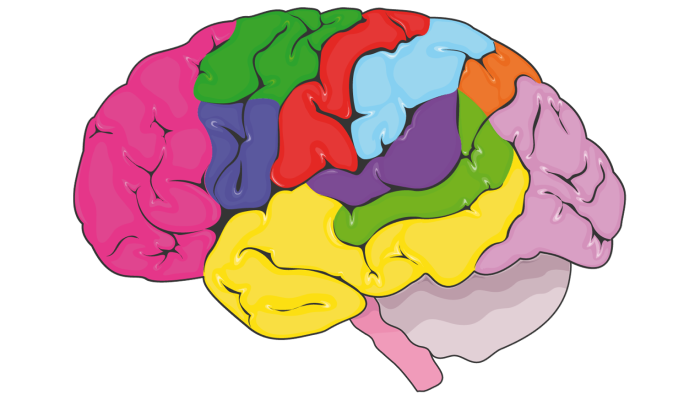
Human body
Where can I find information about the human body?

Scientists (New Zealand)
Where can I find information about New Zealand scientists?

Genetic modification
Where can I find information about genetic modification?

Influenza pandemic 1918
Where can I find information about the flu (influenza) pandemic in 1918?
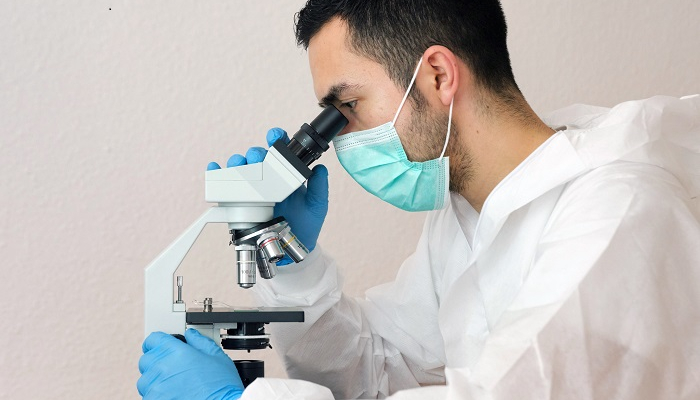
Epidemics & pandemics
Where can I find information about epidemics & pandemics?
